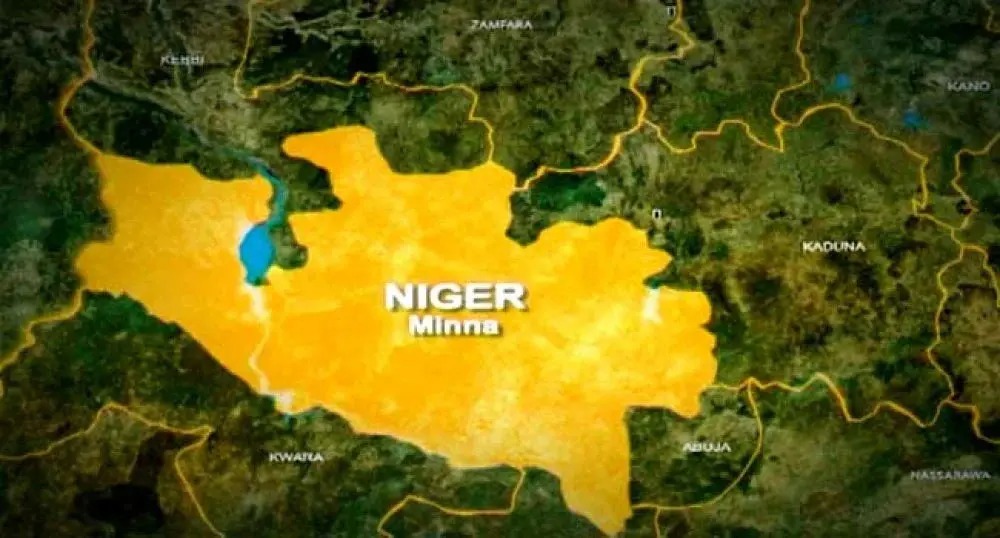Paragraph 1: The Dikko Junction Tragedy
A devastating petrol tanker explosion ripped through Dikko Junction, near Suleja, Niger State, claiming the lives of 86 individuals and leaving 55 injured. The incident occurred on a Saturday morning when a speeding fuel tanker crashed, spilling its contents onto the road. As residents rushed to scoop the spilled fuel, a catastrophic explosion ignited, engulfing those at the scene and others who attempted to rescue them in a raging inferno. The initial death toll was reported as 70, but as recovery efforts continued, more bodies were discovered, tragically increasing the count.
Paragraph 2: Aftermath and Mass Burial
The Niger State Emergency Management Agency (NSEMA), in collaboration with local authorities and volunteers, undertook the grim task of recovering and burying the deceased. A mass burial was conducted, with 80 victims laid to rest in mass graves at the Dikko Primary Health Care (PHC) premises. Five bodies were claimed by relatives for private burial, and one individual succumbed to injuries at the Dikko PHC, bringing the total death toll to 86. The injured, now numbering 55, received medical attention at various hospitals. The scale of the tragedy shocked the nation, prompting widespread calls for action and preventative measures.
Paragraph 3: Government Response and Directives
Niger State Governor Mohammed Bago visited the scene of the explosion and immediately implemented measures to address the situation. He banned vehicles traveling from the Maje axis from passing through the Dikko bridge, a move aimed at reducing traffic and potential risks in the area. He further directed the Federal Road Safety Corps (FRSC) to establish a permanent detachment at the junction to enforce the ban and ensure greater road safety. President Bola Tinubu expressed his profound sorrow over the incident and directed relevant agencies to provide comprehensive medical care to the injured. He also called for a nationwide educational campaign to raise public awareness about the dangers of scooping fuel from fallen tankers.
Paragraph 4: Federal Intervention and Support
The Federal Government, under President Tinubu’s directive, mobilized its resources to provide assistance to the victims and affected communities. The Minister of Information and National Orientation, Mohammed Idris, announced the immediate transfer of critically injured victims from Suleja General Hospital to tertiary health facilities for specialized care. This move underscored the government’s commitment to ensuring the best possible medical treatment for those affected by the tragedy. The Minister of Humanitarian Affairs and Poverty Alleviation, Dr. Nentawe Yilwatda, also visited the explosion site to assess the situation and coordinate relief efforts.
Paragraph 5: Condolences and Calls for Action from Various Stakeholders
Expressions of grief and condolences poured in from across the country and beyond. Former President Muhammadu Buhari lamented the recurring nature of such incidents despite repeated warnings, while Vice President Kashim Shettima assured the victims’ families of the government’s commitment to preventing future occurrences. The Speaker of the House of Representatives, Tajudeen Abbas, called for a thorough investigation into the accident. Both the Northern and Southern Governors’ Forums expressed their deep sorrow and solidarity with the people of Niger State. The National Chairman of the All Progressives Congress (APC), Dr. Abdullahi Ganduje, described the incident as a heartbreaking tragedy, while the Corps Marshal of the FRSC, Shehu Mohammed, urged fuel tanker operators to adhere strictly to safety standards.
Paragraph 6: Focus on Prevention and Road Safety
The Sultan of Sokoto, Alhaji Sa’ad Abubakar-led Jama’atu Nasril Islam, called on the Federal Government to take decisive action against tanker explosions and improve road safety. They urged for increased surveillance on accident-prone highways and expedited completion of the long-delayed Suleja-Minna dual carriageway. The Nigeria Union of Petroleum and Natural Gas Workers (NUPENG) appealed for urgent repairs to failed sections of highways and emphasized the need for continuous driver training and public sensitization campaigns on the dangers of scooping fuel. These calls for action highlight the urgent need for a multi-pronged approach to prevent similar tragedies from occurring in the future, encompassing road infrastructure improvements, stricter safety regulations, and enhanced public awareness.














